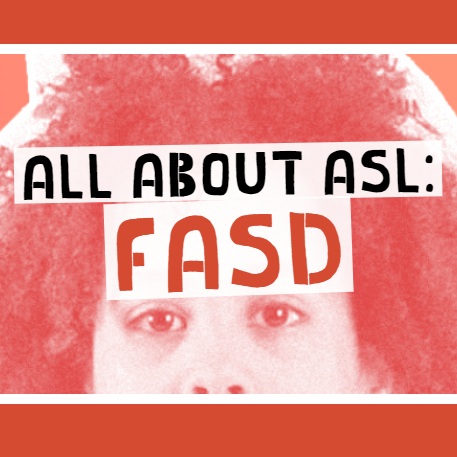Dispelling the myths of Fetal Alcohol Spectrum Disorder
20 Jan 2025
Estimated to impact 3-5% of the entire population and 20% of children and young people in the care experienced community, the importance of increasing awareness and education on the symptoms and impact of Fetal Alcohol Spectrum Disorder (FASD) is plain to see.
Ahead of a training session on Thursday 6 February, which will offer practical strategies for professionals working with children and young people, Barbara Ogston, FASD Services Manager as FASD Hub Scotland, shares more about the lifelong neurodevelopmental condition and how a lack of awareness has increased the challenges facing those affected.
Fetal Alcohol Spectrum Disorder (FASD) is a neurodevelopmental condition that may affect people exposed to alcohol before they were born. It is a lifelong, often hidden, condition that can affect people in many ways across the lifespan. FASD affects around 3-5% of the population - that’s 1 in 20 people - which makes it as prevalent as ADHD, however, FASD is often unrecognised or undiagnosed. Within the care experienced community, FASD is thought to affect at least 20% of children and young people which makes it a significant issue for many adoptive, foster and kinship families.
FASD has a huge range of symptoms which can affect any aspect of day-to-day life. Common challenges include difficulty with planning, problem solving, sensory issues, sleep difficulties, emotional regulation, learning and cognition, impulse control and many more.
The importance of diagnosis
Diagnosis is important to help people with FASD access the support they need and to help them understand why and how their brain works differently. With early identification of FASD and the right supports in place, people with FASD can go on to achieve throughout life but we are still a long way from easy access to diagnosis for many people.
The challenges of FASD for children and young people
Many of the challenges children and adolescents experience come from a lack of awareness and recognition of FASD and of appropriate support. Too often the symptoms of FASD are seen as ‘bad behaviour’ instead of the results of a brain based condition. Without the right support, people with FASD are more likely to experience challenges as they grow older, including involvement with the criminal justice system, mental health difficulties, challenges in finding and keeping work, substance misuse and being vulnerable within the community.
Myths and misconceptions
There are lots of myths and misconceptions around FASD and in our training sessions we break some of these down and share the most up-to-date research. For example, it’s a myth that people with FASD are only born to women with an alcohol addiction. FASD is prevalent across all of society and there is no known safe level of alcohol exposure in pregnancy, which is why official guidance recommends alcohol-free pregnancies. However, we do know that FASD is never a mother's fault – no one sets out to cause harm to their child. It’s the alcohol that leads to developmental differences, not a woman’s actions. There can be a lot of stigma around the condition, but by raising awareness and dispelling the myths we hope many more people with FASD and their families will be recognised and supported in a trauma informed non-judgemental way.
There is also a myth that you can tell someone has FASD by looking at them. This dates back to older diagnostic terminology when the term ‘Foetal Alcohol Syndrome’ was used, but now it is accepted that 90% of people with FASD do not have the sentinel facial features associated with the condition and the term ‘FASD’ is now used to reflect this.
Supporting children and young people with FASD
Over the past couple of years, we have noticed a huge increase in the number of professionals coming to us seeking training as they have come across FASD in their workplace. FASD Hub Scotland has training suitable for parents, carers and professionals, and are always happy to discuss your training requirements. Our training is delivered by people with professional and lived experience of FASD and we would invite everyone working with children, young people and their families to attend.
FASD Hub Scotland provides a support service to all families affected by prenatal alcohol exposure, with or without an FASD diagnosis. Services include an adviceline, family support services, peers support, training and resources. FASD Hub Scotland is managed by Adoption UK and funded by the Scottish Government. You can find out more at www.fasdhub.scot

About the Author
Barbara Ogston is FASD Services Manager, FASD Hub Scotland – managed by Adoption UK in Scotland
Click here for more
FASD Unlocked
Join our online webinar sharing practical strategies for supporting children and young people with FASD
Find out more
FASD: Experiences of young people
The team at Reach recently spoke to young people with FASD to learn about their experiences
Find out more
Annual Conference 2025
Making Space for Voices: Join our Annual Conference in Glasgow on 28 and 29 May 2025
Find out more